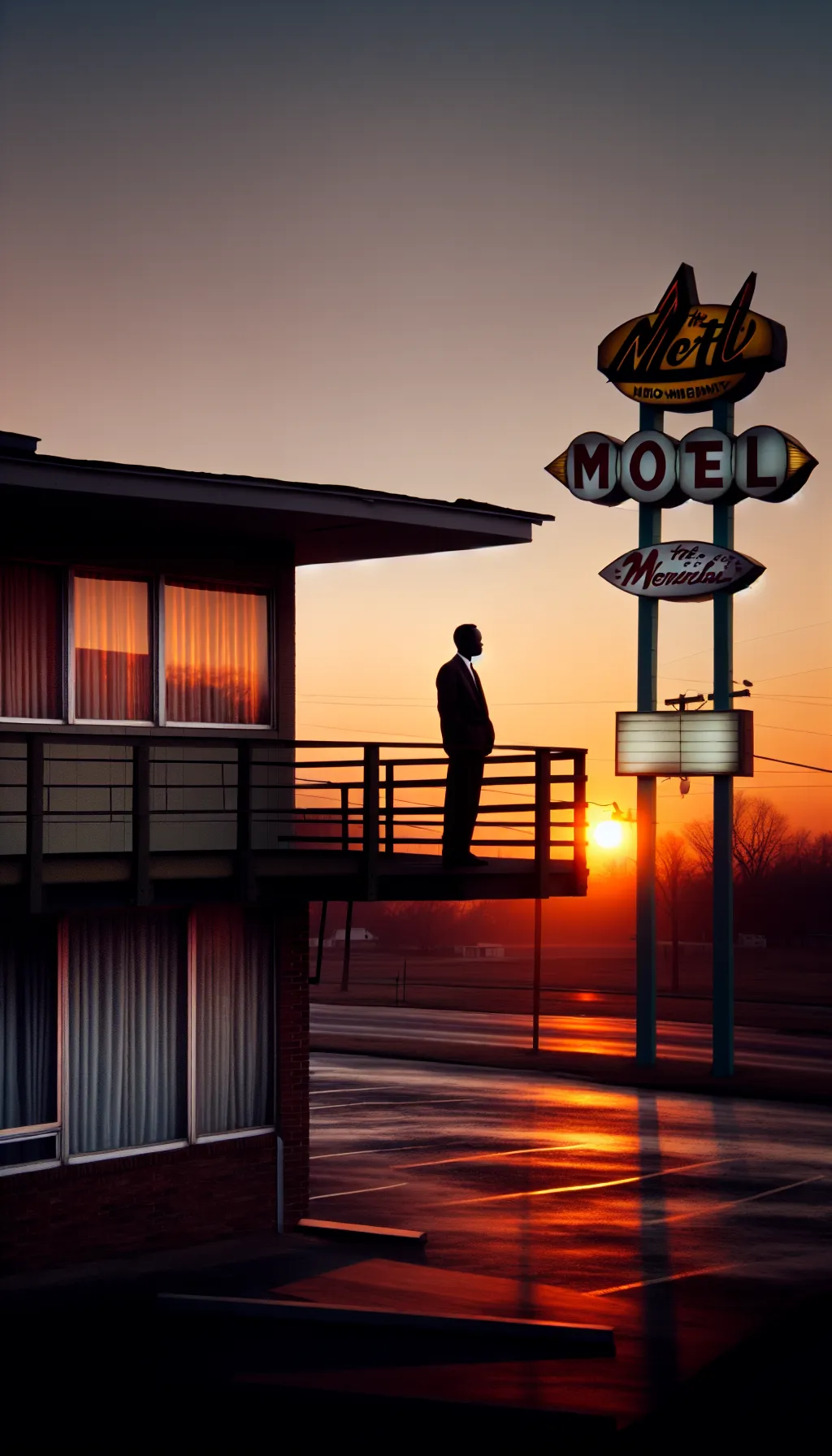United States – The Echo of a Dream Silenced – April 4, 1968
TLDR;
- Event: Dr. Martin Luther King Jr. was assassinated on April 4, 1968, in Memphis, Tennessee, while supporting a sanitation workers’ strike.
- Impact: His death sparked widespread grief and riots across the U.S., highlighting deep racial and social tensions.
- Legacy: Despite the tragedy, King’s vision of equality and nonviolent resistance continues to inspire the fight for civil rights and justice.
- Context: By 1968, King had expanded his focus to include economic justice and opposition to the Vietnam War, making him a more controversial figure.
–
–
Story
The sun was setting over Memphis, Tennessee, casting long shadows across the Lorraine Motel. Inside, a man stood on the balcony, a beacon of hope and change. Dr. Martin Luther King Jr., the voice of the Civil Rights Movement, was in Memphis to support the sanitation workers’ strike, a pivotal moment in his broader campaign for economic justice and against the Vietnam War.

But in a heartbeat, the world was plunged into darkness. A single shot rang out, echoing through the streets and across the nation. Dr. King fell, his dream of equality and peace shattered in an instant.
The news spread like wildfire, igniting a wave of grief and rage that swept across the United States, though the reaction was not uniform nationwide. Some cities remained calm, while others saw violent unrest within hours.
For years, Dr. King had been the face of nonviolent resistance, advocating for the rights of African Americans and inspiring millions with his vision of a harmonious future. By 1968, his focus had expanded beyond civil rights to include economic justice and opposition to the Vietnam War, making him more controversial in some circles.
In the days that followed, cities erupted in riots, a testament to the frustration and despair felt by those who had looked to Dr. King for guidance. Yet, amidst the chaos, his legacy endured, fueling the ongoing fight for civil rights and equality.
The assassination of Martin Luther King Jr. was a turning point in American history, a moment that forced the nation to confront its own prejudices and the urgent need for change, even as the Civil Rights Movement had already begun fracturing before his death. His dream lives on, a call to action for future generations to continue the struggle for justice and equality.
–
| Would a different approach to civil rights have changed the course of history? |